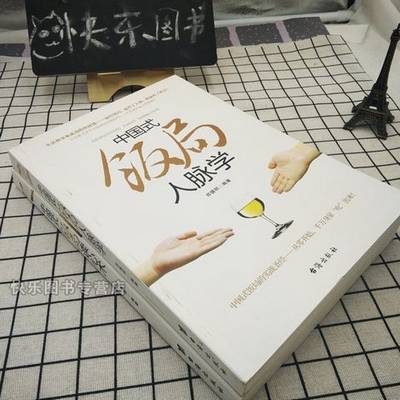英语口语 怎么说一口纯正的英国腔
| 内容头部广告位(手机) |
This article focuses on "Received Pronunciation" (RP), the stereotypicalBritish accent mainly spoken in the south of England, and exaggerated by theupper classes, giving it the nickname "the Queen's English". There are greatlydiffering accents across England, Scotland, Wales and Northern Ireland, and fora more regional or 'authentic' accent, it's best to choose one particular area,and try to learn that accent instead. Adopting British mannerisms while speakingwill also help for authenticity.
这篇文章的重点在于若何发“RP”(ReceivedPronunciation)英式英语,也就是典范的重要在南部英格兰被利用、被上流社会发扬光大的英式英语,这类口音也被称作“女王的英语”。英格兰、苏格兰、威尔士和北爱尔兰都有很是多分歧的英语白话,以是为了选择一个更区域化、更纯洁的口音,咱们最佳选择一个特定的地区,然后测验考试去学阿谁处所的口音。在说英语的时辰采用英国人的言行举止也会帮忙你使口音变得加倍纯洁。
Part 1
第一部门
R's
Start with the Rs.
从发“R”这个音起头。
Understand that in most British accents speakers don't roll their Rs(except for those from Scotland, Northumbria, Northern Ireland, and parts ofLancashire), but not all British accents are the same. For example, a Scottishaccent varies greatly from an English accent. After a vowel, don't pronounce theR, but draw out the vowel and maybe add an "uh" (Here is "heeuh"). In words like"hurry", don't blend the R with the vowel. Say "huh-ree".
大部门英式口音中,措辞者不会把“R”发成卷舌音(除那些从苏格兰、诺森比亚、北爱尔兰、和部门兰开夏来的人之外),但不是所有英式口音都是同样的。好比,苏格兰口音和英格兰口音就有很大的不同。在一个元音字母后面,不要发“R”的音,但把这个元音提掏出来,然后加之一个“uh”的音(这里是“heeuh”)。在“hurry”这个单词中,不要把“R”音和元音混在一块儿。说“huh-ree”。
In American English, words ending with "rl" or "rel" can be pronouncedusing either one or two syllables, completely interchangeably. This is not thecase in British English. "-rl" words like "girl", "hurl", etc, are pronounced asone syllable with silent R, while "squirrel" is "squih-rul", and "referral" is"re-fer-rul".
在美式英语中,以“rl”或“rel”末端的单词可以被发成一个或两个音节,而它们是彻底可以交换的。在英式英语中咱们却不克不及如许发音。以“-rl”末端的单词,好比“girl”、“hurl”,要发成一个音节,“R”不发声。咱们要把“squirrel”发成“squih-rul”,把“referral”发成“re-fer-rul”。
Some words are easier to say in a British accent. For example, mirror,which sounds like "mih-ra". Do not say "mirror" like "mere"; British peoplealmost never do that.
有一些单词在英式口音中会更好发音。举个例子,“mirror”这个单词,读起来会像“mih-ra”。不要把“mirror”发成“mere”。英国人几近不会那末发音。
Some awkward pauses in sentences are also removed by the addition of 'r'before a vowel. For example, "I saw it" becomes "I saw-rit", to avoid the pausebetween the words 'saw' and 'it'. Another example is "Bacteria are small",pronounced "Bacteria-rar-small".
在句子中一些奇异的搁浅处可以经由过程在元音字母前加之“r”来改良。举个例子,“I saw it”会被发成“Isaw-rit”,来防止“saw”和“it”中的搁浅。另外一个例子是“Bacteria aresmall”,它会被发音成“Bacteria-rar-small”。
Part 2
第二部门
U's
Pronounce U in stupid and in duty with the ew or "you" sound.
在“stupid”和“duty”这些词中发“U”这个音的时辰,要发成“ew”或“you”音。
Avoid the oo as in prounounced; thus it is pronounced stewpid or co妹妹onlyschewpid, not stoopid, etc. duty would be pronounced dewty or more often jooty.In the standard English accent, the A (for example, in father) is pronounced atthe back of the mouth with an open throat—it sounds like "arh". This is the casein pretty much all British accents, but it's exaggerated in RP. In southernEngland and in RP, words such as "bath", "path", "glass", "grass" also use thisvowel (barth, parth, glarss, grarss, etc.). However, in other parts of Britain"bath", "path", etc. sound like "ah".
防止发“oo”的音;“stupid”要发成“stewpid”或更广泛的,“schewpid”,而不是“stoopid”。“duty”要发成“dewty”或更常见的“jooty”。在尺度的英语口音中,发“A”这个音(好比“father”)要把喉咙打开、用口腔的后侧发音——它会听起来像“arh”。这是所有英式口音广泛的发声法子,但在“RP”中这类法子被加倍强调。在南部英格兰和RP中,“bath”、“path”、“glass”这些词一样也用这个发音(爆发“barth”、“parth”、“glarss”、“grarss”等等)。但是在其他英国地域,“bath”、“path”这些词的“A”音倡议来像“ah”。
Part 3
第三部门
T's
Sometimes drop the Ts.
有些时辰不发“T”音。
With some accents, including cockney accents, Ts aren't pronounced in

wordswhere Americans use D to replace it. However, there is usually a short pause or"hiccup" in its place. "Battle" might be pronounced ba-ill. This is known as theglottal stop. use glottal stops, too, for words like "mittens" and "mountain".It's just that British use them more often.
在一些口音中,包含伦敦本地口音,“T”的发音不像美国人那样用“D”取代——“T”不发音。但是,“T”音地点的处所常常会呈现短暂的搁浅或“打嗝”。“battle”可能会被发成“ba-ill”。这被称作“声门塞音”。在读“mittens”或“mountains”如许的词的时辰,也要利用声门塞音。只是由于英国人常常利用这类发声法子。
People with Estuary English, RP, Scottish, Irish and Welsh accents doconsider it lazy and rude to drop the Ts, and this feature doesn't exist, but inalmost all accents it's accepted to do it in the middle of words in casualcontexts and almost universal to put a glottal stop at the end of a word.
具有港湾、RP、苏格兰、爱尔兰和威尔士口音的人认为在发音中省略“T”是怠惰而粗暴的,而且感觉这类发音法子其实不存在,但在所有口音中在平常的说话情况下在单词中心不发“T”音,或在单词末端

利用声门塞音都是很常见的。
| 内容底部广告位(手机) |
| 留言与评论(共有 0 条评论) |


